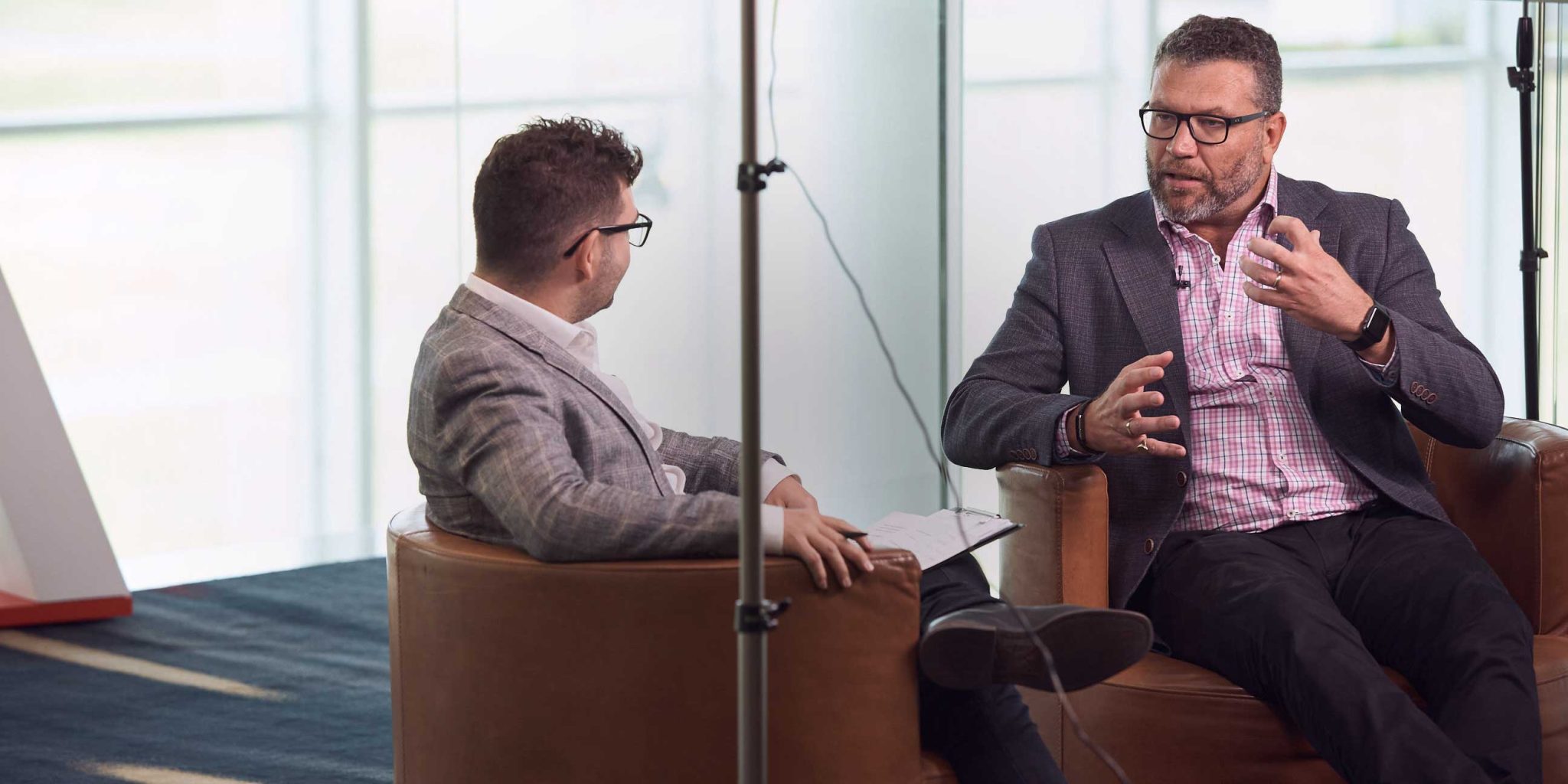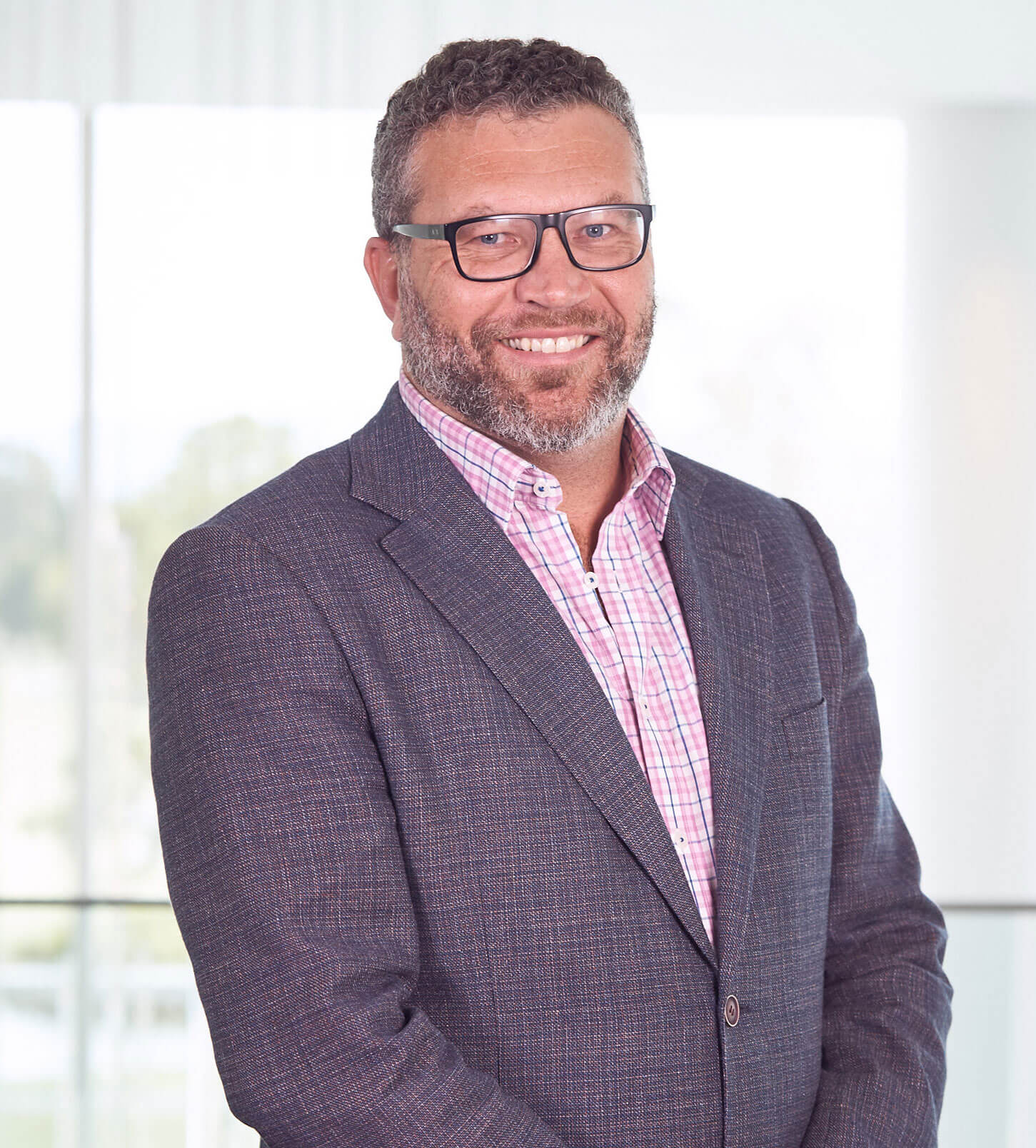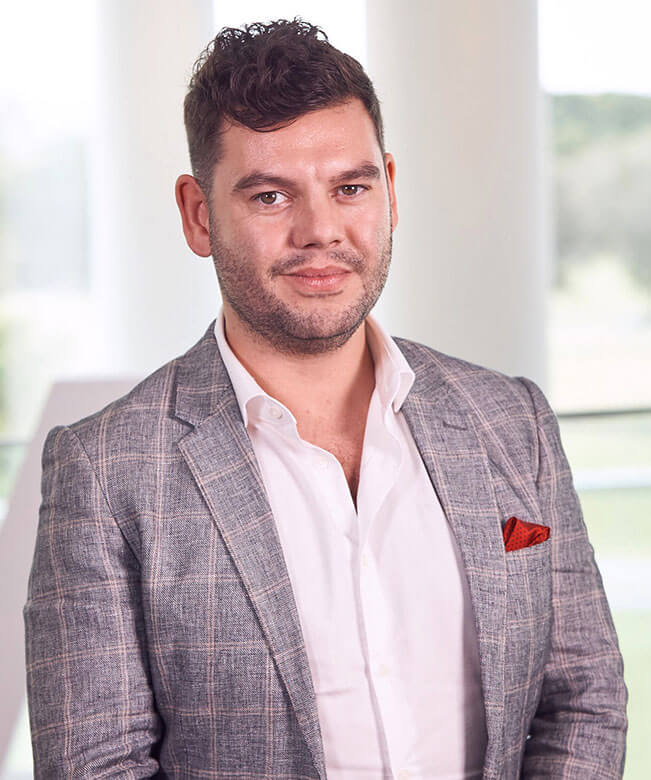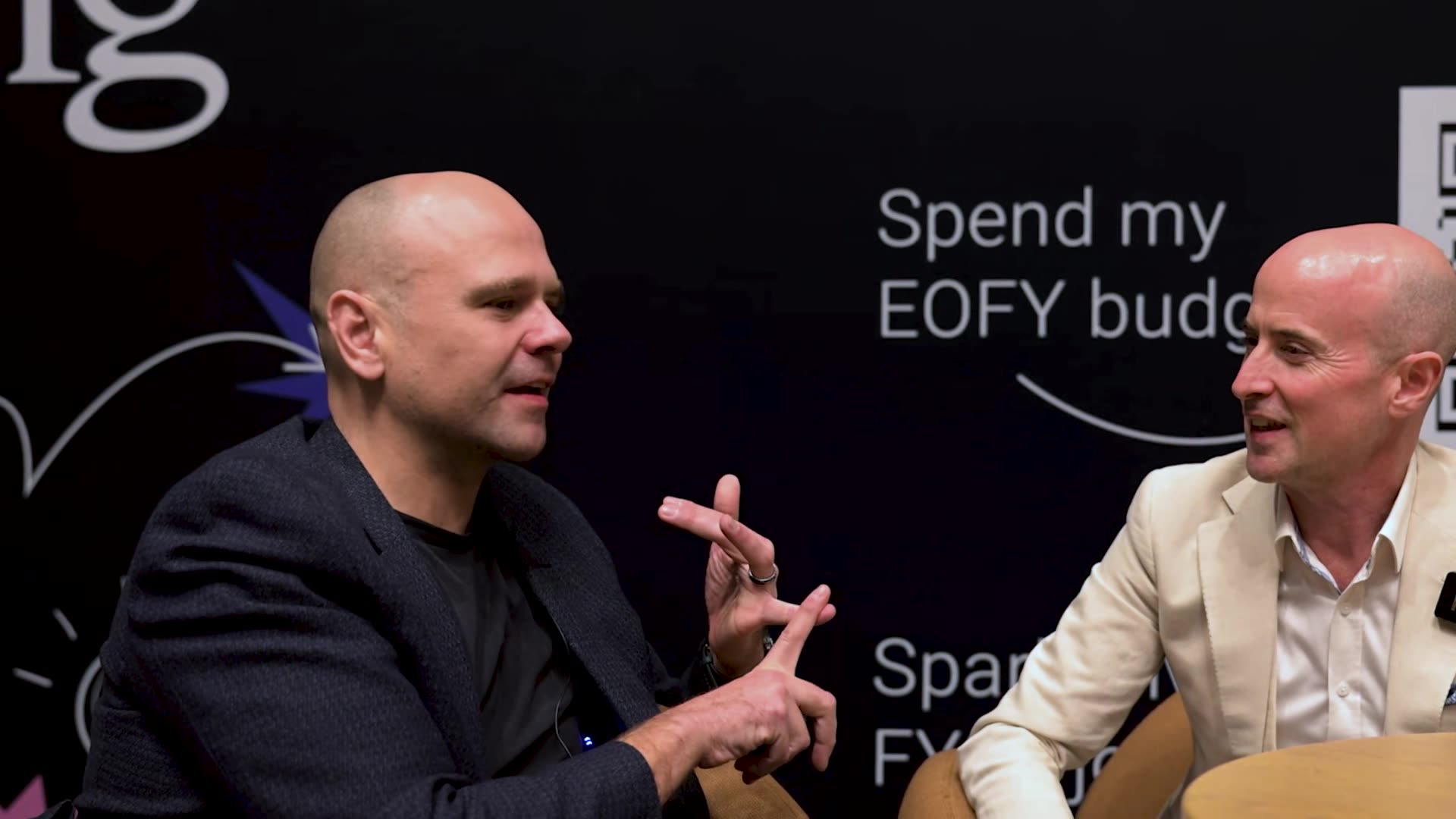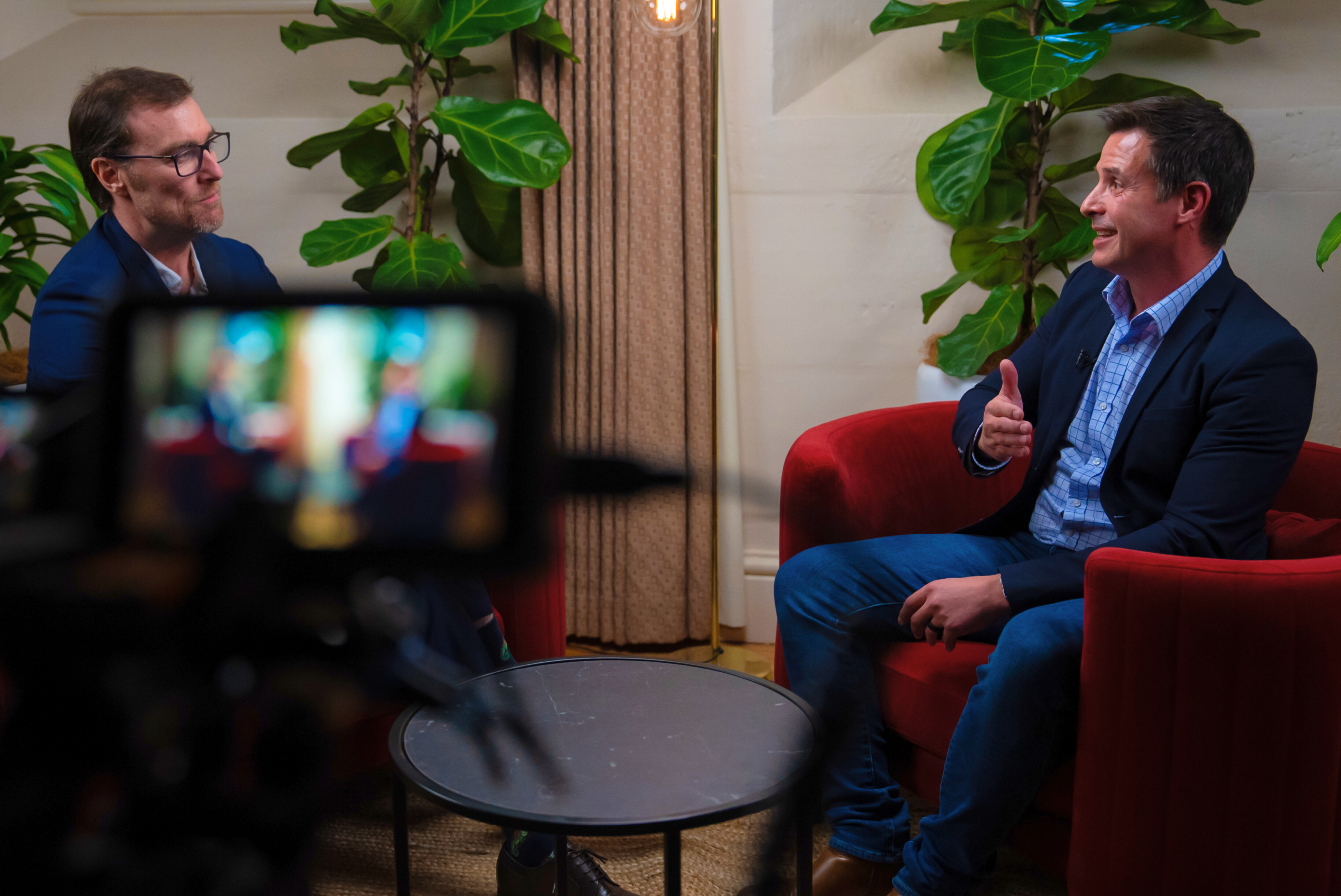Cities are getting smarter, and the strategic planning behind them is too! Matthew Schultz, the Chief Digital Officer of Ipswich, is responsible for a City Digital Strategy encompassing Smart City, Data and Infrastructure, Innovation, Startups and Education and Digital Enablement, Technology Attraction and Development. Matthew has also positioned Ipswich as the first Australian City to be recognised as a Top 7 worldwide Intelligent Community by the Intelligent Community Forum and also a Smart 21 worldwide Intelligent Community by the Intelligent Community Forum.
Matthew Hanley, Partner at ADAPT, sits down with Matthew at ADAPT’s Connected Cloud & Data Centre Edge to discuss; the explosion of “Data, Endpoints, Edge Computing” & the emergence of broadband and digital transformation to enhance cities and communities.
Matthew Hanley:
So we’re here at ADAPT Connected Cloud & Data Centre Edge. I’m joined by Matthew Schultz, who’s the Chief Digital Officer of Ipswich Council. The CDO role, it didn’t exist 10 years ago. How’s that evolved in what you guys do as an organisation?
Matthew Schultz:
A good question. And you’re right, it didn’t exist. What’s happened is the emergence of broadband and digital transformation for our cities and communities, it just needed a bit it more of an understanding. At a city level, instead of an organisation level, which is traditional IT, where the CIO looks after the provision of services.
It’s more about understanding “Okay, how do we deploy, how do we get a greater understanding of these different technologies? How do we create better experiences and services for our businesses and residents and visitors like tourists?” It branched from an exercise in getting better broadband through to digital economy development, and then it’s emerged, this smart city concept, which has been big in Australia since about 2015.ow can we enable better services, realise our opportunities, overcome our challenges, through the enablement and the implementation of digital technologies? That’s really what a smart city is all about. We’re getting more into deploying sensors, connecting infrastructure for better management decisions. We’re rolling out networks to pick up the data from sensors and bring it back to our cloud data platforms.
I’ve been a very hands-on Chief Digital Officer. Some other cities have a CDO that’s more of a figurehead or front-facing, working with businesses about how to better use technology and things like that. That’s all very valid, but for me, it’s been more about how do we create a strategy, and then how do we execute and implement on those strategies to create a better city.
Matthew Hanley:
Now, Matthew, it’s a good point. There’s an explosion of data. Endpoints, edge computing, there’s so much that you must be taking on, and you’ve been seen over the last few years as one of the top seven most intelligent communities in the world. 2016, ’15, ’16, and ’18. How are you dealing with this, this explosion of data, and what are you doing with it?
Matthew Schultz:
The approach we’ve taken is putting in place the right foundations and the right architecture approach to then build and scale over time. Ipswich is a city of 215,000 people, the fastest-growing city in Queensland, with a massive amount of infrastructure and $2.5billion worth of assets across the city. We’ve only just started to connect some of these assets. We’ve got probably about 150 to 200 connected, live, IoT devices in Ipswich city at the moment.
So we’re verymuch at the start of it. But we’re confident in the approach we’ve taken, the strategy, and the architecture. We believe we will be able to build and scale. Collecting the data is one thing, and we feel like we’re on the right track for that, but the challenge for us will always be how we then analyse it and disseminate it for the creation of better decisions. How do we serve that data up in a way that different levels of the city, both within the council and externally, has that access? How do we do it in a way that’s intuitive and ensures we can solve the problems that we’re trying to solve?
That’s the challenge, and that’s going to be an evolution for us. We just need to continue to build along the foundations that we’ve put in place and move it forward because we’ve done that type of thinking, that’s part of the reason why the intelligent community forum has recognised Ipswich for those Top Seven awards, which was very pleasing, and a great thing for Australian cities. It also shows, on the world scale, that we are there to a point. We definitely have our strengths and weaknesses in comparison to cities in North America and Europe and the Asia Pacific, but it shows that we’re on the right track and we’re putting in place the right foundations.
Matthew Hanley:
It’s good to see. When I look at technology in Australia, in many areas, I think we’re lagging behind China and North America and places in Europe and the Middle East. But it’s great for that recognition. And I think what’s exciting in the future is what’s possible. And I know you’re president of some smart cities councils, and you’ve been recent to Barcelona, and you’ve been able to compare with other cities what they’re doing. What does the future look like not just for Ipswich, but for Australia? What is going to be possible in the next few years? Because technology’s going pretty fast, and we’re trying to keep up. What’s the plan for you guys, which is coming up next?
Matthew Schultz:
For me, that’s a very good question. From an Australian context, I believe a couple of things. I believe, personally, whatever can be connected will be connected. The concept of should we are attempting to collect real-time data on certain things. I think that’s inevitable. There’s no question that we will do it, it’s how and when we get to that point. I think there are big opportunities for innovation in the way that we can analyse and disseminate the data that we’re collecting.
Some of the start-ups that I’m being exposed to, some of the work that they’re doing with AI in terms of the automation and ability to quickly apply those algorithms to create those new outcomes and answers to problems, it’s fascinating. We’re going to be able to provide those pockets of innovation, an Australian context, we’re still at the stage of “What’s the strategy? What’s the problem’s we’re trying to solve? What are the opportunities that we’re trying to realise? What’s the business case to get it up and running and then rolled out?” We’ve still got some challenges with a wider and deeper understanding of the decision-making levels about why this is important. We’ve still got some challenges to work through, but generally, we will always have examples of leadership and innovation in certain things that will definitely compete well on the world stage.
Matthew Hanley:
Awesome. And on that data piece that you just mentioned, obviously, Europe’s going through that phase now with GDPR. I see the benefits of customer data giving a better experience. There’s got to be defined ways of collecting that data and then packaging it and using it in the future. What kind of decisions are you guys making at the moment around that piece of customer data, if you want to call it that?
Matthew Schultz:
Absolutely. It’s a really, really important emerging piece that we need to get right, as cities and regions across Australia. How do we go about the business of making these improvements, collecting more data than we have in the past, but doing it in a way that respects privacy, re-affirms trust from the citizen and the local government who might be doing that?, How do we do it in a way where it’s quite transparent in how and what we’re using that data for. That’s areas of work we still need to do. A lot of the Ipswich data collection is based on machine-generated data, such as a streetlight generating data about its operations, which is less of a privacy concern.
In any city, we’ll want to put in place the right type of frameworks to preserve data usage and create that trust and re-affirm that trust with the community and the citizens that you serve. So a lot of work still to do, but from the viewpoint the Australiaalia Smart Communities Association, it’s an important piece that we need to do a lot more work on to get that right in a co-created away.
Matthew Hanley:
Did you have any good examples? I imagine traffic flow is an example, but do you have any good examples where customer data have been really successful in terms of projects which you’ve deployed?
Matthew Schultz:
I’ve seen them more in Europe and North America. There’s a lot more maturity about being open, being transparent, co-creating solutions with the community at large, and putting in place those right type of frameworks where people know exactly why and what the government or the service provider is trying to do with traffic data that might contain bits and pieces of personal information to improve traffic flow as an outcome. There are examples, but it’s still a piece that’s emerging. I think I’d be looking more for Europe at this stage. That’s where I’m seeing a lot more of that maturity, but more to do, I suppose, to implement that for Australia.
Matthew Hanley:
Is there a part to play for the big corporates? And I mean this in terms of partnerships where you’ve got your big insurance companies who are talking to the transport authority. Is it a huge partnership development?
Matthew Schultz:
Ideally, that’s what we want to try and create. We need to create the right type of marketplace conditions where there’s an incentive for all of the different players to play together, Through a smart city approach, you can create the foundation to enable those potential outcomes. We’re still working through it from a jurisdiction viewpoint. What are the incentives that make the insurance company want to participate and flow the data through to the council or the transport authority?. We’ve got to get through the thinking of, “Okay, well how does that value chain work, and why is it a good thing for all to play within that marketplace?”
 WATCH
12:33
WATCH
12:33



















